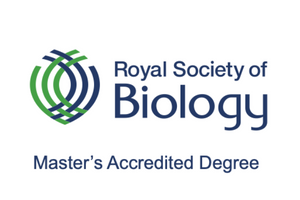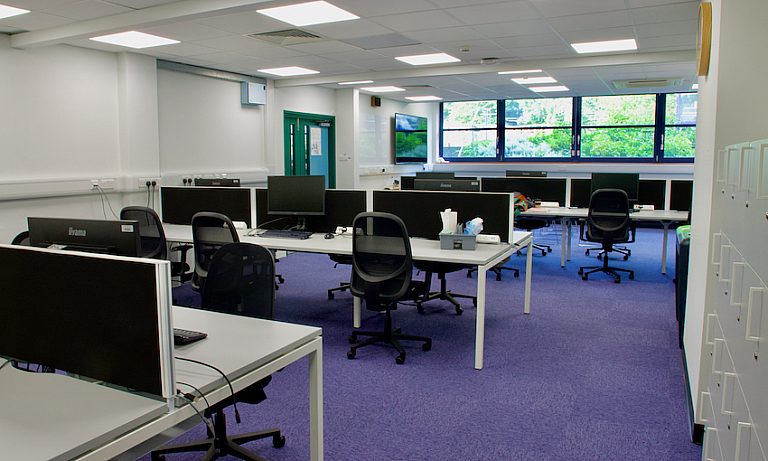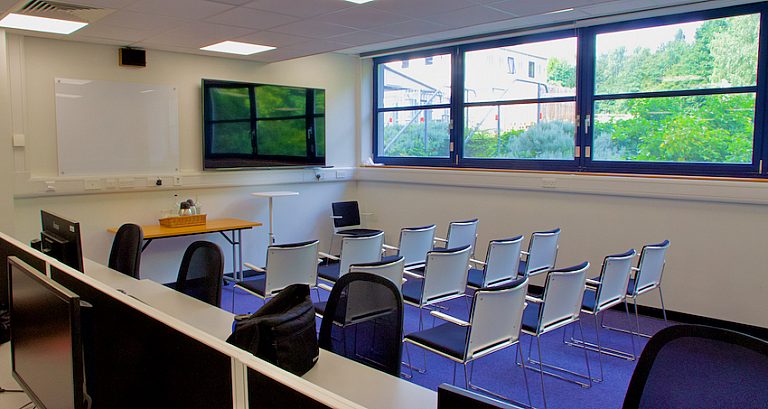MSc in Global Plant Health
The Sainsbury Laboratory runs a one-year taught MSc in Global Plant Health.

You will learn about integrated solutions to emerging plant pathogens, which are rooted in the science of molecular plant-microbe interactions, plant immunity, microbial pathogenesis and data science. You will also learn the leadership and management skills required to make a difference on the ground. We adopt innovative teaching methods that encourage active and independent learning with less emphasis on traditional didactic lectures. You will deepen your learning in the last module of the course by working on a scenario-based research project.

Dedicated MSc study space at TSL
You will be taught by TSL’s world-leading researchers including Professor Nick Talbot FRS, Professor Sophien Kamoun FRS, Professor Jonathan Jones FRS, Professor Wenbo Ma, Professor Cyril Zipfel, Professor Dan MacLean, Dr Frank Menke and international guest speakers involved in global plant health. Three of these researchers are in the 2020 Highly Cited Researchers list of the top 1% scientists on the globe. You will also learn from our staff scientists, research students and post-doctoral workers.
David Sainsbury International MSc Scholarships in Global Plant Health
*IMPORTANT – Although we still have some 35% Fee Scholarships available, we have allocated all available Full Scholarships for a September 2024 start. We are working hard to secure additional funds for more Scholarships. We will update this page as soon as we have any news to share.
We encourage you to secure your own scholarships. If you are unable to cover the full cost of your studies and you come from one of the least-developed, other low-income or lower-middle-income countries, TSL offers the prestigious David Sainsbury International Full MSc Scholarship in Global Plant Health to a limited number of applicants on a competitive basis. The Full Scholarship can fund up to the full cost of the course and living expenses. All applicants from other countries will be considered for a 35% Fee Scholarship on a competitive basis. See our Scholarships page for more details.
David Sainsbury Scholars share about their own experience:
“The David Sainsbury Scholarship has granted me a rare opportunity to pursue postgraduate studies at a world-leading research institute. My stay at TSL is so rewarding and keeps me fascinated in the science.” - Mark-Jave Bautista
“Through this scholarship, I have had the golden opportunity to grow both personally and professionally. Being at TSL has enhanced my knowledge and skills in plant-microbe interactions, exposed me to new experiences, built me a strong professional network and generally shaped me into a socially responsible individual.” – Barakat Obadara
“The David Sainsbury Scholarship has been a transformative opportunity, providing me access to cutting-edge research facilities, and enabling engagement in impactful research projects with top tier scientists at TSL. This has enriched my academic journey, equipping me with valuable skills and knowledge to contribute meaningfully towards advancing global plant health, and environmental sustainability.” – Clinton Asare
Other sources of funding
Chevening Scholarships make up the UK government’s global scholarship programme. They are open to students from 160 countries, including China, Hong Kong, Japan and Malaysia. The scholarships offer full financial support for students looking to study for a master’s degree at a UK university. See the Chevening website for more details and Scholarship application deadlines (typically November).
The British Society of Plant Pathology MSc/MRes Bursary Scheme awards bursaries to support students undertaking courses with a significant plant pathology content, such as our MSc in Global Plant Health. Please see the BSPP Bursary Scheme webpage for more details and Bursary application deadlines (typically June).
If you are a UK national and normally live in England, you may be eligible for a Postgraduate Master’s Loan, which can help with course fees and living costs. See the UK Government website for more details about eligibility.

Seminar/lecture area in the dedicated MSc study space at TSL
Integration with a diverse community of scientists
You will be integrated in the diverse TSL research community with a base in our newly refurbished MSc study area within the TSL building. The study area includes seminar space as well as desk space with a laptop and IT infrastructure for each MSc student. You will get support before and throughout the course from the TSL Student Committee. You will attend the weekly TSL research seminars and are encouraged to attend other seminars hosted by us and our partner institutions across the Norwich Research Park. Our Group Leaders, staff and students come from all over the globe, and you will chat with them in our coffee room. TSL is relatively small institution that is focussed on scientific excellence with a strong emphasis on collaboration and mutual support. This creates a dynamic environment in which to enjoy the things we love to do.
Careers
You will be equipped with the skills and attributes to allow you to pursue a career in research, including via PhDs locally or elsewhere, agribiotechnology, or policy making in diverse national and international organisations involved in managing and responding to plant disease.
Student Visa-holders may be eligible for a Graduate Visa after successfully completing a degree course.
https://www.gov.uk/student-visa
https://www.gov.uk/graduate-visa
See also the UEA Visa Advice webpages.
https://www.uea.ac.uk/study/international-students/visa-advice
What our students say about the course
“If you're applying for this program, the first thing that you should have is your passion about plant and microbial science. The best thing about the course is that we are exposed to different researchers in science that are top tier in the world.” - Mark-Jave Bautista
“Even though everybody in TSL is busy, they are never too busy for you. I like the fact that you can walk up to somebody and ask for help, and they are willing to give you help at any time.” – Tife Giwa
“The best part of the course for me is the five-month research project” - Prince Amoah
Degree Programme Accreditation by the Royal Society of Biology
This programme has been accredited by the Royal Society of Biology following an independent and rigorous assessment. Accredited degree programmes contain a solid academic foundation in biological knowledge and key skills, and prepare graduates to address the needs of employers. The accreditation criteria require evidence that graduates from accredited programmes meet defined sets of learning outcomes, including subject knowledge, technical ability and transferable skills.
Apply through the University of East Anglia
You will register for your degree at the University of East Anglia (UEA) through the School of Biological Sciences. UEA offers accommodation on their campus, which is part of the wider Norwich Research Park in which TSL is also situated. Overseas postgraduate students new to UEA who apply early enough are usually given priority for a place to stay on campus.
Whatever your funding source, you must satisfy the entry requirements for this course, including demonstrating a high internationally competitive academic standard, and a commitment to active learning and independent study.
Please see the UEA course page on the MSc in Global Plant Health for all details of the course, eligibility and how to apply.
For academic enquiries to the Course Director, Professor Stephen Bornemann FRSB FRSC, or general enquiries to the Course Administrator, Margaret Bush, please email msc@tsl.ac.uk
(See our YouTube Playlist for more videos about our MSc.)